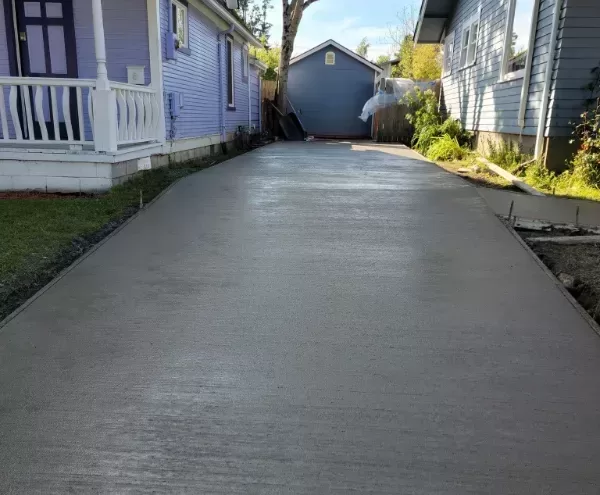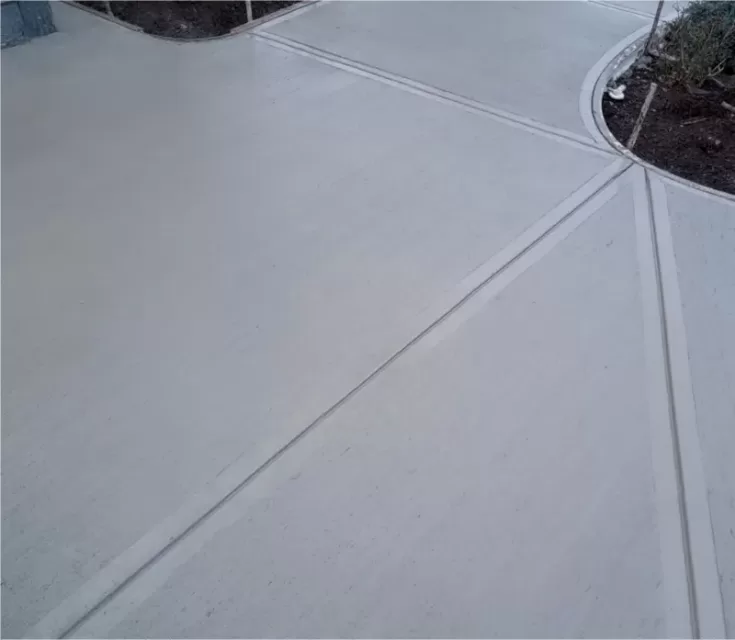Concrete is often advertised as a durable, long-lasting material for walls, floors, driveways, and more. Its exceptional durability can withstand hard weathers and even natural disasters. It is one of the rare materials whose durability is also coupled by its low-maintenance care. Concrete lasts for years with no or very little dangers of rot, rust, or ruin.
That said, concrete, like all things, needs proper maintenance to extend its lifespan. In this article, you’ll find tips and tricks in all things concrete maintenance, spanning from the common causes of concrete damage to the long-term benefits of concrete conservation.
The Importance of Proper Concrete Maintenance
Concrete is already strong on its own, but with a little elbow grease, it can last longer than most materials. It’s important to keep in mind that concrete maintenance is necessary to increase longevity of your property. So why is it important to have proper concrete maintenance?
For one, concrete maintenance keeps your structure safe. Maintenance includes regular monitoring, and by doing this, you can easily see little cracks and chips before they become bigger problems. It’s not unusual for concrete structures to accumulate damage over time. However, being mindful of your property can help prevent them from becoming safety risks.
Another reason to maintain your concrete is to improve the material’s lifespan. Concrete is already super durable, and proper maintenance can help it last even longer.
What Are the Common Causes of Concrete Damage?
Unlike metal or wood, concrete is not so easily damaged. However, there are some common causes that a property owner should look out for to avoid concrete cracks:
- Freeze-Thaw Cycle: If you live in an area with harsh weather, it’s important to monitor your concrete’s health throughout the winter and summer seasons.
- Corrosion: With the growing problem of acid rains, concrete can sometimes be in danger of becoming loose because of chemicals that are spilled on it accidentally, or mixed in with rainwater.
- Fire Damage: In the unfortunate event of house fires or wildfires, concrete loses a considerable amount of its strength and elasticity.
Tips and Tricks for Concrete Maintenance
Concrete maintenance is not as stressful as it might seem. One of the best things about concrete is that it is one of the most low-maintenance materials there is. It often just needs a good sweeping or hosing down. Other maintenance tips include removing snow, dead leaves, and other substances that can mess with its composition.
The best thing about concrete maintenance is that you can often see what it needs just by plain observation. There are usually no underlying issues if the surface looks good. So a good rule of thumb for maintaining concrete would be to just keep it clean.
How to Maintain Concrete Quality
On top of clearing your concrete surfaces, it is also important to shield them from damage. Maintaining the quality of your concrete can be done in various ways. One of them is sealing your concrete. Contact a trusted concrete expert to do the job for you, or do it yourself by purchasing a high-quality sealant and applying it to a dirt-free concrete surface. Filling and caulking up cracks and gaps can also improve the quality of your concrete.
How to Maintain a Concrete Driveway or Walkway
If you have a concrete driveway or walkway, whether it’s smooth or stamped, keeping it clean and pristine can help preserve its durability. Here are some concrete maintenance tips to help you out. Start by regularly cleaning your driveway with a leaf-blower or a broom. To take it up a notch, try power-hosing and scrubbing the surface free of stains, dirt, and moss.
It’s also important to be mindful of the tools you use to maintain your concrete driveway and walkway. Use plastic shovels instead of metal ones. Use water instead of harsh chemical solutions that can potentially harm your concrete surface.
Benefits of Proper Concrete Maintenance
Maintaining your concrete is a no-brainer. It requires very little effort and reaps countless benefits. The following advantages can be acquired if you follow the tips and tricks learned in this article:
- Structural Safety: Regular concrete maintenance makes your homes and structures safe for your family and neighbors by ensuring sturdiness.
- Improved Longevity: Keeping your concrete clean and clutter-free can make it last for years to come with very little upkeep.
- Better Aesthetics: Nobody likes seeing unkempt concrete with all the cracks and stains on the surface. Proper concrete maintenance ensures that your property looks its best.
- Risk Reduction: Good concrete maintenance lowers the risk of potential harm or injury by making your space safe for you and your family.
- Cost-Effectiveness: Proper concrete maintenance lessens costs in the long run by minimizing the need for repairs and restoration.
Remember, maintaining your concrete can reap all these benefits, and it doesn’t require too much effort. Take care of your concrete and it will last longer. And when the time for repairs is needed, seek out a contractor that specializes in concrete repair in your area.

